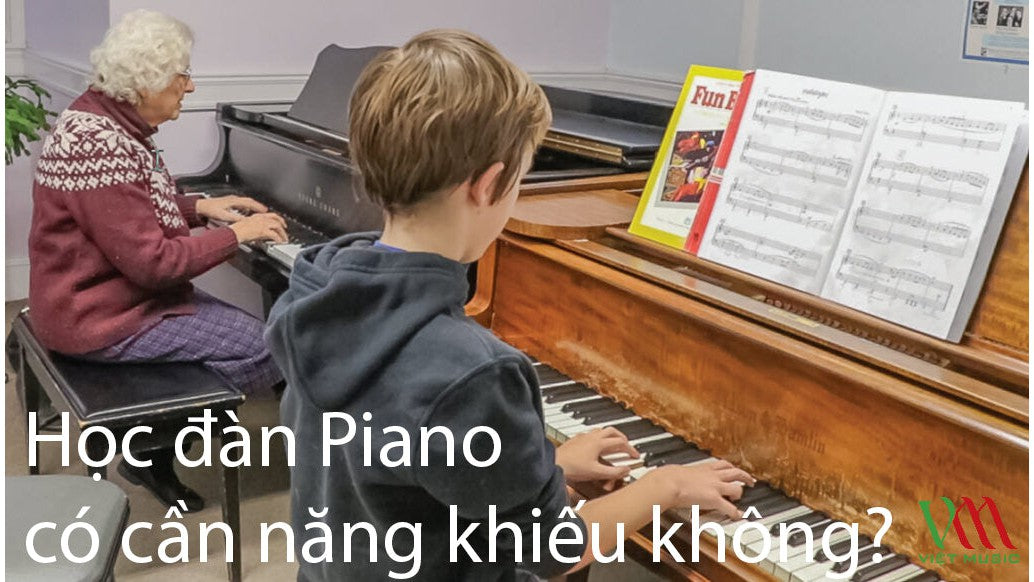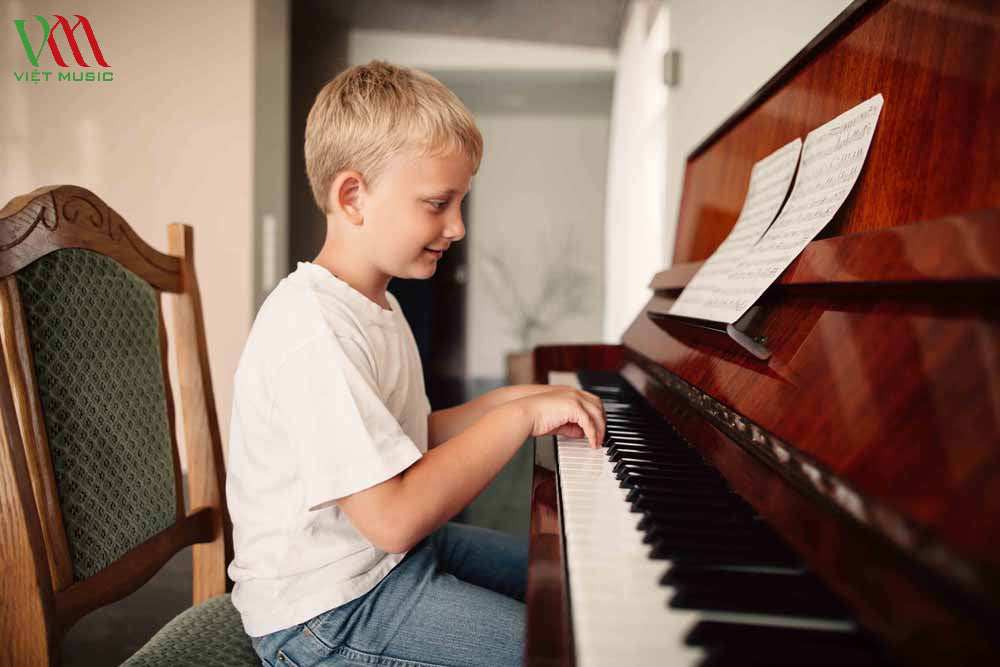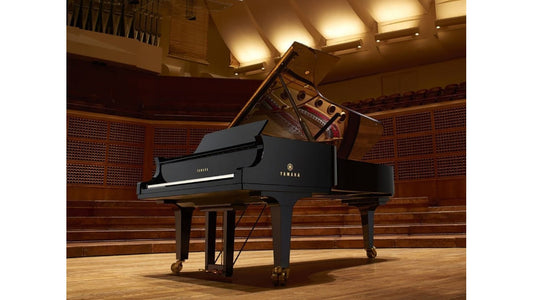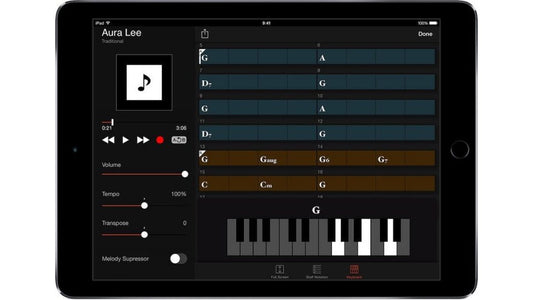
Học Đàn Piano Có Cần Năng Khiếu Không?
Bạn muốn học đàn Piano nhưng không biết mình có năng khiếu hay không, lỡ mình không có năng khiếu thì liệu có học được đàn hay không. Hoặc mình lớn tuổi hay con mình nhỏ tuổi quá, mà chưa biết có năng khiếu âm nhạc thì có học được đàn piano không? Thật may mắn, bài viết này sẽ giúp bạn trả lời được câu hỏi: học đàn piano có cần năng khiếu không?
1. NĂNG KHIẾU GIÚP HỌC ĐÀN NHANH HƠN CHÚT ÍT
Theo từ điển Tâm lý học, năng khiếu là tập hợp những tư chất bẩm sinh, nét đặc trưng và tính chất đặc thù làm tiền đề bẩm sinh cho năng lực.
Thực tế, không phải tất cả những người xuất sắc là những người có năng khiếu. Chúng ta nên biết rằng thiên tài chỉ có 1% tài năng thiên bẩm, 99% còn lại là mồ hôi và nước mắt. (Edison phải mất hơn 10.000 lần thí nghiệm, để sản xuất được bóng điện mà chúng ta đang dùng hàng ngày).
Hãy cùng nhau đặt 1 câu hỏi. Tại sao không ai đưa con đi học văn hoá, hỏi thầy cô câu này:
“Cháu liệu có năng khiếu học văn hoá không cô?”
Bởi vì học văn hoá là một công việc bắt buộc, học dốt học giỏi thì cũng vẫn phải đi học, còn học đàn thì không. Chúng ta mặc định việc học đàn chỉ dành cho những người có năng khiếu, Why?

Năng khiếu cũng là tố chất sẽ được giáo viên chuyên môn phát hiện và đánh giá trong quá trình học sinh theo học.
Mỗi học sinh sẽ có những năng khiếu khác nhau. Người có tai nghe rất tốt, người có khả năng ghi nhớ những giai điệu, những nốt nhạc rất lâu, người có năng khiếu đặc biệt về kĩ thuật, có đôi bàn tay với những ngón tay cực nhạy...
Nếu bạn có năng khiếu âm nhạc, và có sự đầu tư nghiêm túc cho âm nhạc, bạn sẽ có thể phát triển công việc ở lĩnh vực này như: làm giảng viên âm nhạc, nhạc công, nhạc sĩ, cao hơn là việc trở thành các nhà phê bình âm nhạc, nhà nghiên cứu âm nhạc,…
Có những người chẳng có năng khiếu gì nhưng lại vô cùng cần cù chăm chỉ. Có người trong tay có đầy đủ tố chất để phát triển nhưng lại lười biếng coi nhẹ việc luyện tập.
Trên thực tế, bất cứ ai trong chúng ta cũng có thể học được đàn, giống hệt như việc chúng ta đi học văn hoá, chỉ tiếc là việc học đàn không phải một môn học bắt buộc.
2. CÓ NĂNG KHIẾU NHƯNG CẦN CHĂM CHỈ LUYỆN TẬP
Chắc hẳn trong chúng ta, ai quan tâm tới âm nhạc cũng đều nghe tới 2 cái tên vĩ đại này: Wolfgang Amadeus Mozart và Ludwig van Beethoven. Cùng người viết tìm hiểu quá trình trở thành “thiên tài âm nhạc” mà hậu thế tặng danh hiệu đó cho 2 ông như thế nào nhé.
2.2 Quá trình học đàn: Mozart
Các phân tích khoa học cho thấy, khả năng âm nhạc của Mozart từ tuổi thơ, hoàn toàn là kết quả của sự chăm chút sớm bởi tay người bố, nhà soạn nhạc cung đình Leopold Mozart. Những sáng tác đầu tay thuở niên thiếu chỉ là sự lặp lại các bài tập của thầy giáo, đôi khi được người cha “chỉnh sửa” đôi chút và hầu như luôn được hậu thế thêu dệt thêm nhiều.
Mozart thành tài từ lúc rất trẻ, không thể phủ nhận tài năng thiên bẩm của ông, song nếu so sánh ông với các học sinh trường năng khiếu nhạc chuyên nghiệp ngày nay trên thế giới thì ông không có gì quá vượt trội. Các sáng tác của ông hôm nay được in ra hàng triệu đĩa, nhưng hầu như tất cả đều theo đơn đặt hàng chứ không phải đến từ cảm hứng tự nhiên của ông.
Nhà phê bình âm nhạc người New York “Alex Ross” đã tổng kết phần lớn các phát hiện gần đây trong cuốn Điều kỳ diệu của Salzburg: "Các bậc cha mẹ tham vọng, những người thường bật các đĩa ʹBaby Mozartʹ cho con trẻ nghe hẳn sẽ thất vọng nếu biết rằng Mozart trở thành thiên tài nhờ sự khổ luyện của chính ông".

Mozart trở nên sống động trong vở kịch 'Amadeus ' tại Nhà hát Tulsa
2.3 Quá trình học đàn của Beethoven
Beethoven - Một trong những nhạc sĩ vĩ đại của nhân loại, tác giả của tác phẩm Sonate Ánh Trăng, Fur Elise. Khi ông còn là một đứa trẻ, người cha nghiêm khắc của ông đã yêu cầu ông luyện tập piano và violin trong hơn 8 tiếng mỗi ngày, ngay cả trong mùa đông lạnh giá. Sau khi Beethoven trở nên nổi tiếng, ông vẫn luyện tập chăm chỉ như một học sinh tiểu học và làm việc liên tục để cải thiện các vấn đề chuyên môn của mình.

Ludwig van Beethoven làm việc bên ánh đèn
Qua hai câu chuyện trên chúng ta có thể thấy, để trở thành thiên tài hay một super star, không có gì là tự nhiên mà đến.
Vậy nên dù không có năng khiếu, bạn vẫn có thể tự tin học đàn Piano, chơi đàn. Chỉ cần có sự đam mê, lòng yêu nhạc, bạn sẽ học thành công và chơi được những bài mình yêu thích.
3. HỌC ĐÀN PIANO PHỤ THUỘC VÀO NHỮNG YẾU TỐ SAU:
Người học có kiên trì không?
Người học có chăm chỉ không?
Giáo viên có truyền được cảm hứng để tạo động lực tích cực cho người học không?
Phụ huynh có kiên nhẫn trả học phí để nuôi dưỡng và ủng hộ việc con học đàn mà không bàn đến năng khiếu hay không? ( Rất thực tế nhé, vì nếu phụ huynh từ chối làm việc này thì kế hoạch học đàn phá sản luôn từ đầu đó! )
Muốn học được chữ, phải ngồi luyện chữ, tập đọc, tập viết. Muốn học được đàn, trước khi dùng đến năng khiếu chúng ta phải học nhận biết các nốt nhạc, học cách viết nốt nhạc, tập đàn.
Vậy nên hãy bỏ qua những băn khoăn và tự tin theo học các môn nghệ thuật các bạn nhé!
Thành công đều đến từ sự nỗ lực và rèn luyện k ngừng.
Bài viết trên hy vọng đã giải đáp được thắc mắc cho bạn về học đàn piano, về năng khiếu học đàn Piano cho người mới bắt đầu học đàn.












